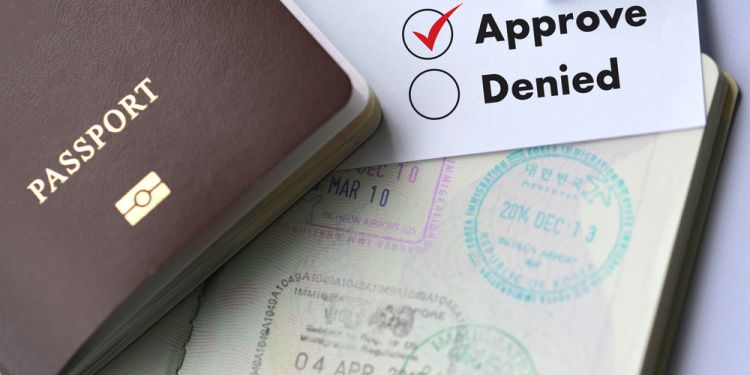
So, you are moving to a new country? With just three months left before the big event, there are plenty of things to be excited about. With that, as exhilarating as this period may be, it can also get quite overwhelming. With so many things to think about, paperwork to arrange and packing to do, the best thing you can do is keep calm and stay organised.
Three months before the move
At this stage in your transition, you probably already have a lot of things settled. With that, there is still plenty of time to make changes and adjustments and get an early start on some last-minute arrangements. So, where do you begin?
This is a good time to make sure you have all the necessary paperwork for your move as well as the trip itself. Depending on your situation, you might want to look into the following:
Visa and related documents. Make sure you have all the paperwork needed for your move to another country. This may include visas for you and all the members of your family, supporting documents (letter of invitation, work contract, etc.), health insurance for the length of your stay, etc. It's also important to make sure that you have a valid passport with enough pages for exit and entry stamps if you plan to do more traveling in and around your new destination.

Documents for your pets. If you are traveling with pets, this may be the time to start arranging the needed medical certificates for their move. Depending on your country of origin and destination, this can be quite a time-consuming process — and you may actually want to get started even earlier. This would also be a good time to get in touch with your chosen airline regarding your pet's/pets' relocation to confirm transportation requirements and cost.
Do you plan to drive in your new country? If so, you have enough time to look into the formalities and, if needed, translate and certify your existing licence at home or even apply for one. Collect the papers you will need abroad. Contact your employer, relatives, acquaintances in the new destination or inquire on forums about the paperwork you may need that you can bring from home. Depending on the specifics of your move, you may require additional documentation on the spot like employer reference letters, a criminal record, marriage/absence of marriage certificate, etc.
Housing options. Three months before your move is also a good time to look into housing options. If you are moving for a new job and your employer is making most of the housing arrangements on the other side, you may want to iron out the details and do some of your own research about the area you are moving to. If this is an option, you can get in touch with your future colleagues in the new country and get their advice on the best neighbourhoods, available apartment types, expat amenities, etc. If you are moving on your own and arranging your own housing, you may want to do some more research. Read about the various neighbourhoods in the city, think about your requirements checklist for the new place and, perhaps, contact several real estate agencies in the area. Committing to a long-term real-estate contract at a distance can be problematic, and if this is not something you want to do, consider temporary housing options and explore the best offers in your destination.
Childcare. If you are moving with children, check out schools, kindergartens or other educational establishments in your new city. This would also be the time to start making final arrangements at your child's/children's current educational establishment and prepare for their transition to a new place.

Language. If you are moving to a country where a different language is spoken, three months is also enough time to pick up some basic words and phrases in the new language that may help you in the first stages of your new life.
Finally, you can start making a list of the things you plan to take with you and, if you are not traveling light, go shopping for a relocation company to help you with shipping your belongings.
Two months before the move
This is the time to get even more concrete about your preparations.
For one, you can start packing. If you plan to ship a lot of your belongings abroad, this may be the time to start making a list of the things you plan to take with you and get rid of the things you will have no use for. As an option, you may organize a yard sale, sell your things on an online flea market, give them to friends, donate to charities, etc.

Go in for a medical check and get the essential medical records you might need in the new place. You can also ask your doctor for medical recommendations pertaining to your move — especially, if you are moving into a different climate. It's a good idea to pay a visit to your dentist for a check up and cleaning as it may take you some time to find one in your new destination. Finally, you should check if the medication you require regularly (or its equivalents) is available in your new country. You may also want to get an official record of your prescriptions should you need it upon arrival and look into stocking up on some medication that you can take with you. Prior to that, make sure to check the customs regulations of the country you are moving to.
On the social side, you can start arranging meetings with friends and family before your move and making sure you have agreed upon means of communication after you've left.

When it comes to building connections abroad, this may be a good time to look for fellow expats on forums, discussion boards and social media, check if there are any clubs or interest groups you may want to join and try to establish a small network before you arrive.
On the personal side, take the time to think about what you will miss the most about your home country and organise some related activities before you leave: take a stroll in your neighbourhood park, eat at your favourite restaurant, catch up with friends, etc.
Finally, you can complete your travel arrangements and proceed to make bookings for your flights, hotels/short-stay accommodation to catch the best deals.
One month before the move
By now, you should be ready with most of your preparations in the new place and the time has come to break ties with some of your existing arrangements at home.
At this point, you should start canceling your existing subscriptions, memberships, accounts, and more. You should also settle your taxes with the appropriate authority and redirect your mail to a friend's or relative's address.
This is also the time to look into mastering the essentials you will need in the new place. Check if there are any useful applications you may want to install on your phone that can help you with payments, bookings, getting around, etc. once you have arrived in the new country.
Ensure you have enough supplies of things that you want to take abroad. Make your final packing decisions: what will you be shipping with a moving company and what will you take with you as luggage.
Make financial arrangements: how will you be paying for things as you step off the plane? Do you need cash? Will your card be accepted abroad?
Create a checklist for the final week before your trip. As things get hectic, absent-mindedness may set in — and, when it does, you will have this carefully crafted list to get you through it.
Things we usually forget
No matter how meticulously you plan your relocation, some things can still get away from you. Below, we've compiled a mini checklist of what is typically forgotten.
Gadgets. Make sure you have all your tech packed and ready — and don't forget to purchase plug adapters (if needed) for it to work in another country.
Address. It's often the obvious things that slip our mind. Confirm the address you are going to and make sure you have it not only saved on your phone but also written down in English and the language of the country you are moving to (in case your phone runs out of battery, for instance).
Network. Will you be using roaming or will you need a local SIM right away? Consider the costs and check if you will be able to get a local SIM card upon arrival. Check if your phone will work on local networks.
Arrival. It's always best to be prepared: check the layout of the airport/port/railway station/etc. that you will be arriving at. Note down what amenities are available on site and which are open 24 hours.
Language. Even if you expect to get about using English, it's still a good idea to have a translation app on your phone for when you can't. This can be useful in a variety of situations: from getting a taxi to navigating the city or shopping at a local street stall.
Internet. As you promise to Whatsapp your friends as soon as you land, make sure you will actually be able to do so. Certain countries enforce internet regulations and you may not have access to certain apps on arrival.
Finally, don't stress. Forgotten documents can be mailed to you, left-behind things can probably be easily found at a department store in your new destination — the only thing that remains irreplaceable is the excitement you feel about exploring a new land.



















